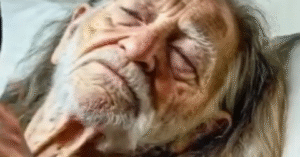Here’s a breakdown of each type of headache
including a description and tips on what to do when you’re experiencing pain:
1. Tension Headache
- Description: Tension headaches are the most common type of headache. They are often described as a dull, steady pain or a feeling of pressure around the forehead, temples, or the back of the head and neck. They are typically caused by stress, muscle strain, or poor posture.
- What to Do When It Hurts:
- Rest in a quiet, dark room.
- Apply a warm compress or use relaxation techniques like deep breathing or meditation to reduce muscle tension.
- Over-the-counter pain relievers (e.g., ibuprofen or acetaminophen) can help alleviate pain.
- Practice good posture and avoid stress triggers.

2. TMJ Headache
- Description: TMJ (temporomandibular joint) headaches are linked to dysfunction or inflammation of the jaw joint, often causing pain around the temples, jaw, and neck. It can also cause jaw clicking or difficulty opening the mouth.
- What to Do When It Hurts:
- Apply a warm compress to the jaw to ease muscle tension.
- Massage the jaw muscles to relieve tightness.
- Avoid chewing hard foods and try to limit activities that involve clenching your jaw (e.g., chewing gum).
- Consult a dentist or healthcare provider for further treatment options, such as a mouthguard to prevent clenching.

3. Migraine
- Description: Migraines are intense, throbbing headaches, often accompanied by nausea, vomiting, and sensitivity to light and sound. They may be triggered by factors like hormonal changes, certain foods, stress, or lack of sleep.
- What to Do When It Hurts:
- Find a dark, quiet space to rest.
- Apply cold compresses to the forehead or neck.
- Take over-the-counter pain relievers or prescription medications if recommended by a doctor.
- Stay hydrated and avoid any migraine triggers you know.
- Consider medications specifically designed for migraines, such as triptans, if prescribed by a doctor.

4. Cluster Headache
- Description: Cluster headaches are severe, stabbing pains typically felt around one eye or one side of the head. They occur in clusters, with intense pain episodes lasting anywhere from 15 minutes to 3 hours, often followed by a period of remission.
- What to Do When It Hurts:
- Seek medical treatment immediately as cluster headaches are very intense. Oxygen therapy may help relieve the pain.
- Over-the-counter pain relievers are often ineffective, so prescription medications may be needed.
- Avoid triggers, like alcohol or smoking, which can exacerbate cluster headaches.
- Consider preventive treatments, such as medications that can reduce the frequency of attacks.

5. Sinus Headache
- Description: Sinus headaches occur when the sinuses become inflamed due to an infection or allergic reaction. They are characterized by pressure, pain, or a feeling of fullness in the forehead, cheeks, and nose area. The pain often worsens with sudden movements or bending over.
- What to Do When It Hurts:
- Use a saline nasal spray or rinse to clear out nasal passages.
- Apply warm compresses to the face to relieve pressure.
- Stay hydrated and use decongestants to reduce sinus swelling (only as recommended by a healthcare provider).
- Seek medical advice if you have symptoms of a sinus infection, as antibiotics may be necessary.

6. Hypertension Headache
- Description: A hypertension headache is a secondary headache caused by high blood pressure (hypertension). The pain is often described as dull and persistent and is typically felt at the back of the head or both sides of the head. This type of headache can be a sign that blood pressure is dangerously high.
- What to Do When It Hurts:
- Seek immediate medical attention if you suspect your headache is related to high blood pressure.
- Take your blood pressure medication as prescribed, and follow your doctor’s advice to manage your blood pressure.
- Rest in a quiet environment and avoid any stress or physical exertion.
- Monitor your blood pressure regularly and aim for a healthy lifestyle with a balanced diet, regular exercise, and stress management.

General Tips for All Headaches:
- Hydrate: Dehydration is a common headache trigger, so drink plenty of water.
- Rest: Lack of sleep can worsen or trigger headaches, so prioritize rest.
- Reduce Stress: Regular relaxation techniques, such as yoga or mindfulness, can reduce the frequency of headaches.
If headaches persist or worsen, it’s important to consult with a healthcare provider to identify the underlying cause and find an effective treatment.




